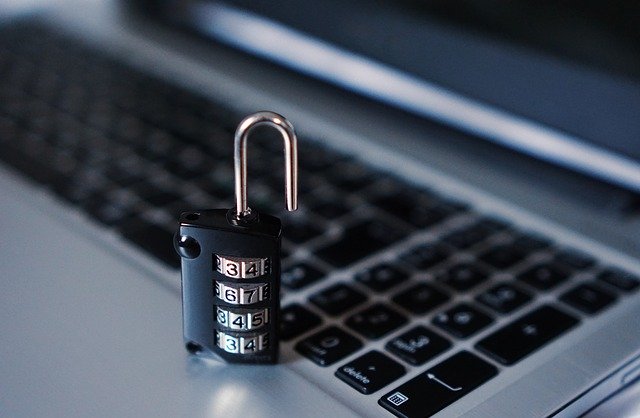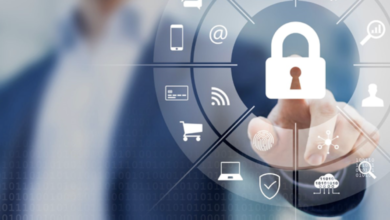
In our digital age, data has become one of our most valuable assets. From personal photos and emails to sensitive financial information, our digital footprint is vast and vulnerable. As cyber threats become more sophisticated, protecting this data is not just a recommendation; it’s a necessity.
This article aims to arm you with practical cybersecurity tips, helping you safeguard your online presence against potential threats. With a few simple yet effective strategies, you can significantly enhance the security of your personal and professional data.
1. Use Strong, Unique Passwords
The first line of defense in protecting your online accounts is a strong, unique password. A robust password should be a complex mix of letters, numbers, and symbols, making it difficult for cybercriminals to guess. Avoid using easily guessable information like birthdates or common words.
One effective strategy is to use a passphrase—a combination of random words or a sentence that is easy for you to remember but hard for others to crack. Additionally, it’s crucial to use different passwords for different accounts. If remembering multiple passwords is challenging, consider using a reputable password manager, which can securely store and manage your passwords for you.
2. Understand the Importance of Regular Software Updates
Cyber security is important in today’s interconnected world, and keeping your software updated is a critical step in cybersecurity. Neglecting these updates can leave your devices and data exposed to attacks. Regularly updating your operating system, applications, and antivirus software ensures that you have the latest security protections.
These updates are not just about adding new features; they’re about safeguarding your digital environment.
3. Be Wary of Phishing Attempts
Phishing is a common method used by cybercriminals to trick individuals into revealing personal information, such as passwords and credit card numbers. These scams often come in the form of an email or message that appears to be from a legitimate source but is, in fact, fraudulent.
To avoid falling victim to phishing, be cautious with emails or messages requesting sensitive information. Check the sender’s email address for authenticity, and look out for suspicious links or attachments. Remember, legitimate organizations will never ask for sensitive information via email. If in doubt, contact the organization directly through official channels.
4. Enable Two-Factor Authentication
Two-factor authentication enhances account security by necessitating two distinct forms of verification. Typically, this involves not only the standard password but also an additional verification step, such as a code dispatched to your mobile device or generated through a specific application. This dual-layer approach ensures that even if someone obtains your password, they still need the second factor to gain access to your account. This means that even if a hacker gets hold of your password, they still can’t access your account without the second factor.
Many online platforms now offer 2FA, and enabling it can significantly enhance your account security. It may add an extra step to your login process, but the added security is well worth the effort.
5. Use Secure and Private Networks
In the age of constant connectivity, it’s tempting to log onto public Wi-Fi networks for convenience. However, these networks often lack robust security measures, making them a playground for cybercriminals.
To protect your data, avoid using public Wi-Fi for sensitive transactions like online banking or shopping. Instead, use a secured network, preferably one that you control, such as your home Wi-Fi, with a strong password.
When you must use public Wi-Fi, consider employing a Virtual Private Network (VPN). A VPN encrypts your internet connection, shielding your activities from prying eyes and providing a secure tunnel for your data transmission. It’s an essential tool for anyone who frequently uses public internet access.
6. Regularly Backup Your Data
Data loss can be just as damaging as data theft. Regular backups are a critical aspect of a robust cybersecurity strategy. By regularly backing up your data, you can protect yourself against ransomware, hardware failure, and accidental deletions. There are various ways to back up your data, including cloud services and external hard drives. Cloud services offer the convenience of accessibility from anywhere and usually provide a high level of security.
However, it’s essential to choose a reputable service with strong security practices. For sensitive information, consider multiple backup methods and keep one offline, such as an external hard drive, to ensure that you have a fail-safe in case of a cyber attack.
7. Educate Yourself About Cybersecurity
Staying informed is your best defense in the rapidly evolving landscape of cybersecurity. Cyber threats are continually changing, and new vulnerabilities are discovered regularly. Educating yourself about the latest threats and protective measures can significantly reduce your risk of a cyber incident. Follow reputable cybersecurity blogs, subscribe to security newsletters, and participate in online forums.
Additionally, many organizations offer cybersecurity training for their employees. Take advantage of these opportunities to learn about the best practices for protecting both personal and company data. Knowledge is power, especially when it comes to cybersecurity.
8. Secure Your Mobile Devices
In today’s mobile-centric world, smartphones and tablets are treasure troves of personal information and are increasingly targeted by cybercriminals. Securing these devices is as important as securing your computer. Always use a passcode or biometric lock on your devices, and keep your operating system and apps updated. Be cautious when downloading apps, especially from third-party stores, as these can sometimes contain malware.
Furthermore, consider installing a reputable mobile security app to provide additional protection against malware, phishing, and other threats. And, just like your computer, regularly back up the data on your mobile devices.
Conclusion
In the digital era, where data breaches and cyber threats are increasingly common, taking proactive steps to protect your data is crucial. From using strong passwords and secure networks to staying informed and securing your mobile devices, these eight cybersecurity tips offer a strong foundation for safeguarding your digital life. By incorporating these tips into your daily digital routine, you can significantly enhance your resilience against cyber threats.





